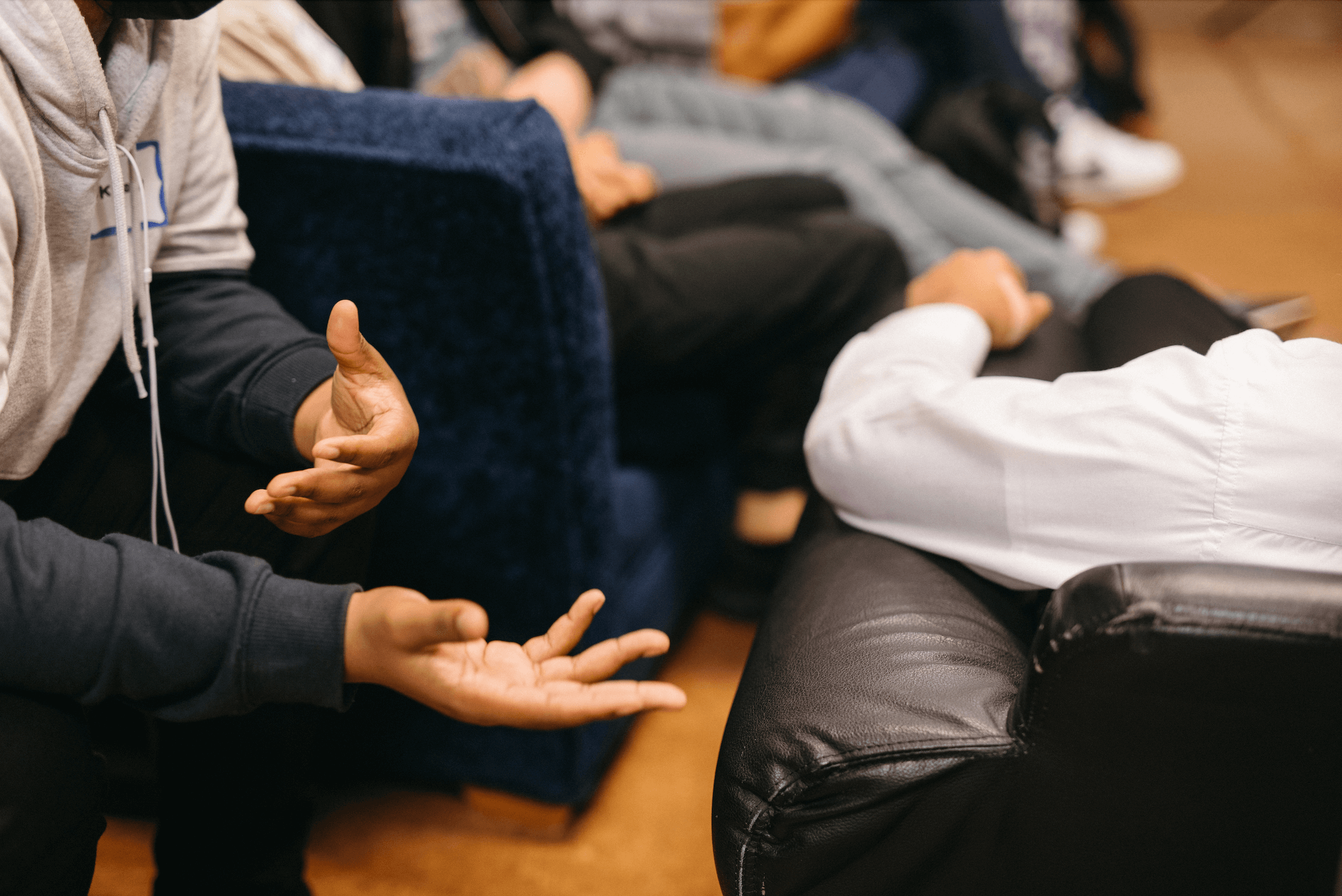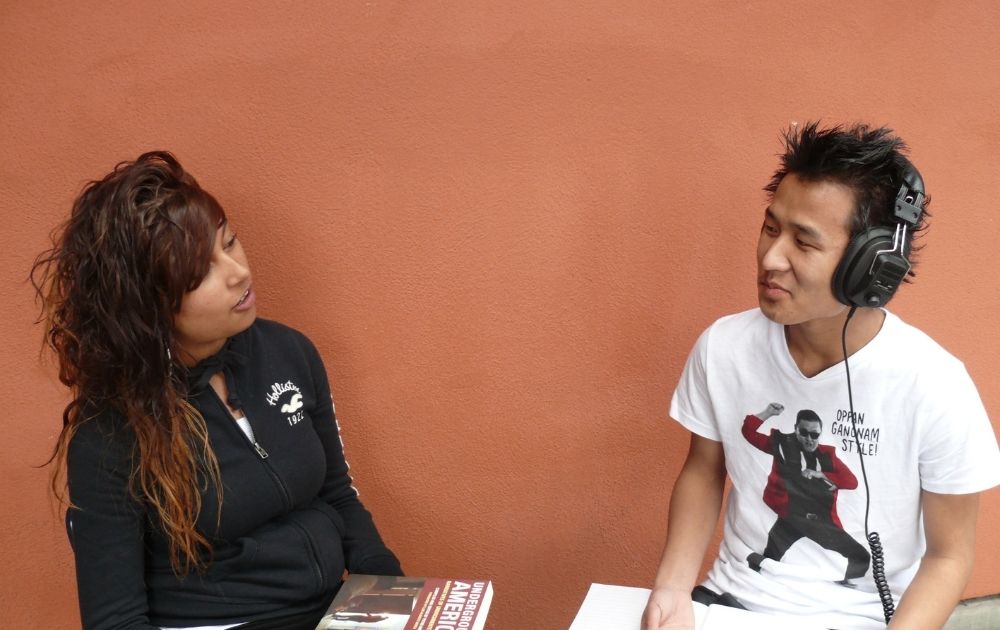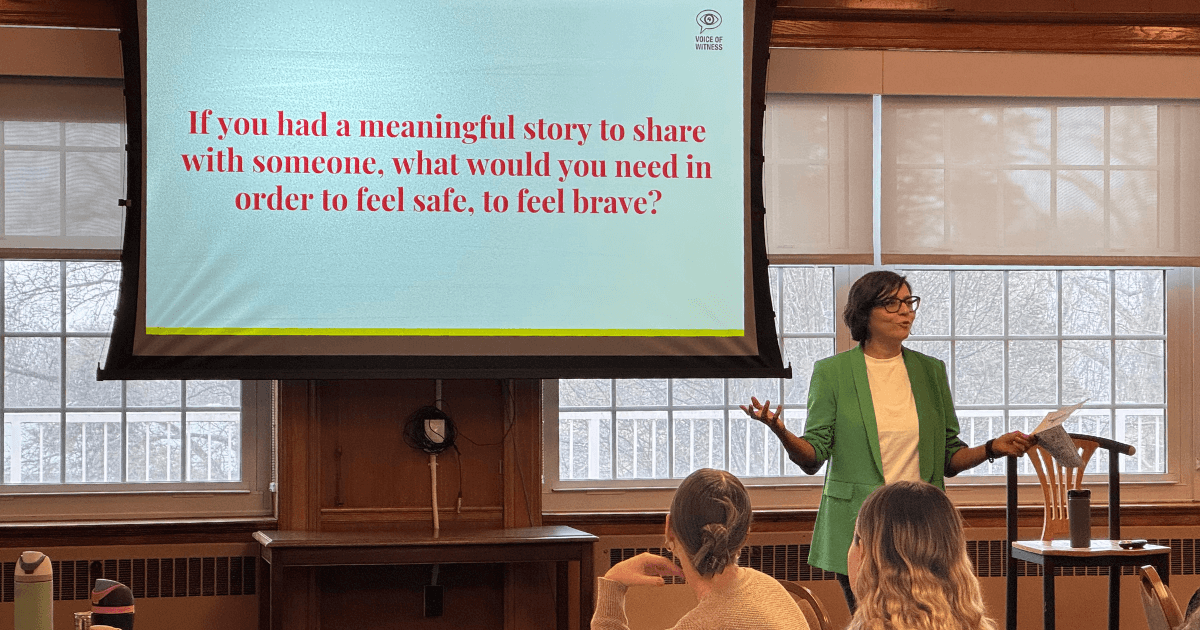 Since 2015, the VOW Education Program‘s Sharing History Initiative has supported passionate and underfunded teachers, storytellers, and community leaders in bringing social justice-based storytelling into their communities. Thanks to the generosity of the Germanacos Foundation, we are able to provide specialized support to select Sharing History participants through the Germanacos Fellowship established last year.
Since 2015, the VOW Education Program‘s Sharing History Initiative has supported passionate and underfunded teachers, storytellers, and community leaders in bringing social justice-based storytelling into their communities. Thanks to the generosity of the Germanacos Foundation, we are able to provide specialized support to select Sharing History participants through the Germanacos Fellowship established last year.
The Germanacos Fellowship for Sharing History allows us to help this small group of teachers, storytellers, and community leaders explore groundbreaking new projects, complete or enhance ongoing projects, and push the boundaries of oral history-based storytelling. Fellows were selected based on criteria including classroom or community need, a demonstrated commitment to advocacy, innovation, and creativity, and the capacity for building empathy-based learning experiences.
Germanacos Fellows will receive:
- $1,200 to cover project expenses
- 20 hours of direct support time from the VOW education staff and learning community
- Opportunities for collaborative learning and professional development within a small, tight-knit cohort of Germanacos Fellows
See what this year’s fellows have to say about what oral history education means to them and their students:
Jennifer Escobar, Moreno Valley College, Moreno Valley, CA
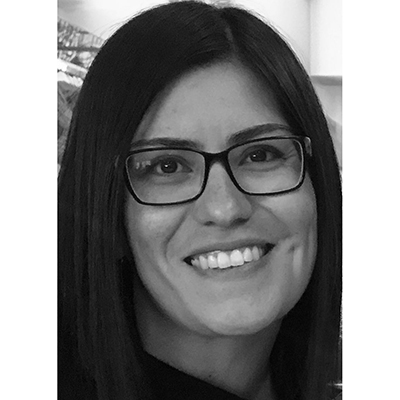 “Oral history storytelling has the potential to highlight experiences of people and communities who are misrepresented and underrepresented in order to effect change and promote equity and social justice. It’s one way for students to gain critical research skills and to learn about themselves and their communities. Crafting a research question and conducting research is an area of critical importance for students enrolled in community college, especially as many of them aspire to transfer to four-year institutions where various research skills are crucial for their academic success.”
“Oral history storytelling has the potential to highlight experiences of people and communities who are misrepresented and underrepresented in order to effect change and promote equity and social justice. It’s one way for students to gain critical research skills and to learn about themselves and their communities. Crafting a research question and conducting research is an area of critical importance for students enrolled in community college, especially as many of them aspire to transfer to four-year institutions where various research skills are crucial for their academic success.”
Sabrina Sanchez, Impact 360, Denver, CO
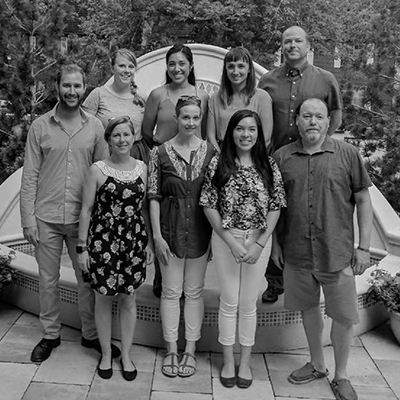 “The collective power of personal narratives is a unique tool that can help others feel connected and supported. It’s our life story. Our personal narratives can offer validity, provide comfort, and can heighten our critical consciousness in order to build strength. The stories essentially can humanize the learning experience. I also feel very strongly that it’s my responsibility as an educator and social justice activist that I continue to work towards fostering growth and creativity, two values that I think oral history/storytelling are based on.”
“The collective power of personal narratives is a unique tool that can help others feel connected and supported. It’s our life story. Our personal narratives can offer validity, provide comfort, and can heighten our critical consciousness in order to build strength. The stories essentially can humanize the learning experience. I also feel very strongly that it’s my responsibility as an educator and social justice activist that I continue to work towards fostering growth and creativity, two values that I think oral history/storytelling are based on.”
Jennifer Dean, Leander Middle School, Leander, TX
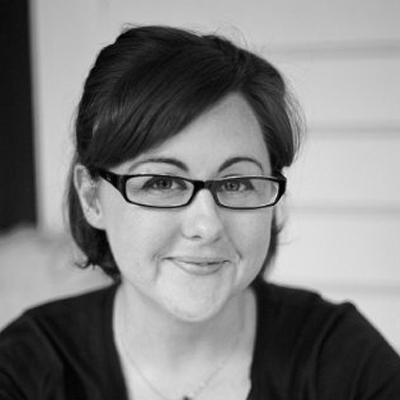 “Last year, I piloted an oral history project in our 8th grade Pre-AP English classes. After completing the project, students reflected on their experiences in exit interviews and commented on the responsibility they felt to their interviewee, the desire to tell someone’s story in that person’s words, and the deeper connections formed with the interviewee. Their reflections are my greatest inspiration to continue creating more, and better, opportunities for oral history storytelling in my classroom.”
“Last year, I piloted an oral history project in our 8th grade Pre-AP English classes. After completing the project, students reflected on their experiences in exit interviews and commented on the responsibility they felt to their interviewee, the desire to tell someone’s story in that person’s words, and the deeper connections formed with the interviewee. Their reflections are my greatest inspiration to continue creating more, and better, opportunities for oral history storytelling in my classroom.”
Frank J. Perez, San Benito High School, Hollister, CA
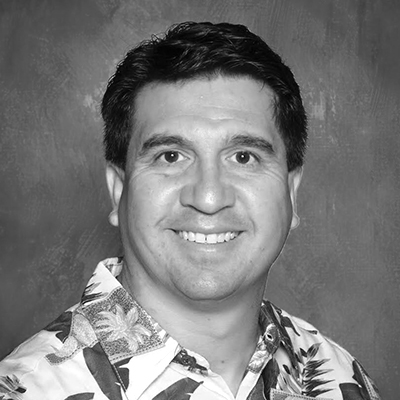 “Oral history storytelling is an innate part of the human experience. Long before the printed word and the digital world that now defines most of our lives was the storyteller—a person who was the vessel of cultural knowledge, the keeper of myths and legends, and the link between the past and the present. Oral history storytelling is in our DNA, though for many our students it remains fossilized.”
“Oral history storytelling is an innate part of the human experience. Long before the printed word and the digital world that now defines most of our lives was the storyteller—a person who was the vessel of cultural knowledge, the keeper of myths and legends, and the link between the past and the present. Oral history storytelling is in our DNA, though for many our students it remains fossilized.”
Maria Laws, Las Lomas High School, Walnut Creek, CA
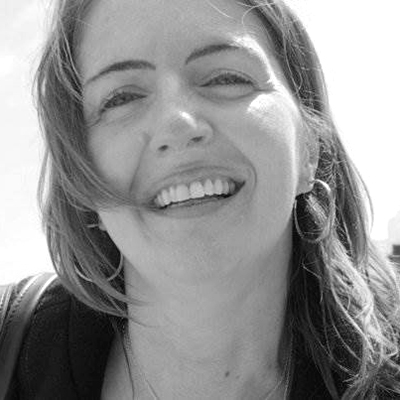 “In my role as a science teacher, I find that one of the most challenging aspects of teaching a rigorous science curriculum is how disconnected the concepts feel to the daily lives and personal interests of students. Sharing stories about how science impacts and is impacted by real people of all walks of life, in roles ranging from curious citizen to trained academic, is a way of humanizing the world of science, specifically the fields of study that deal with things we can’t see directly or easily, both at the micro and macro scales.”
“In my role as a science teacher, I find that one of the most challenging aspects of teaching a rigorous science curriculum is how disconnected the concepts feel to the daily lives and personal interests of students. Sharing stories about how science impacts and is impacted by real people of all walks of life, in roles ranging from curious citizen to trained academic, is a way of humanizing the world of science, specifically the fields of study that deal with things we can’t see directly or easily, both at the micro and macro scales.”

